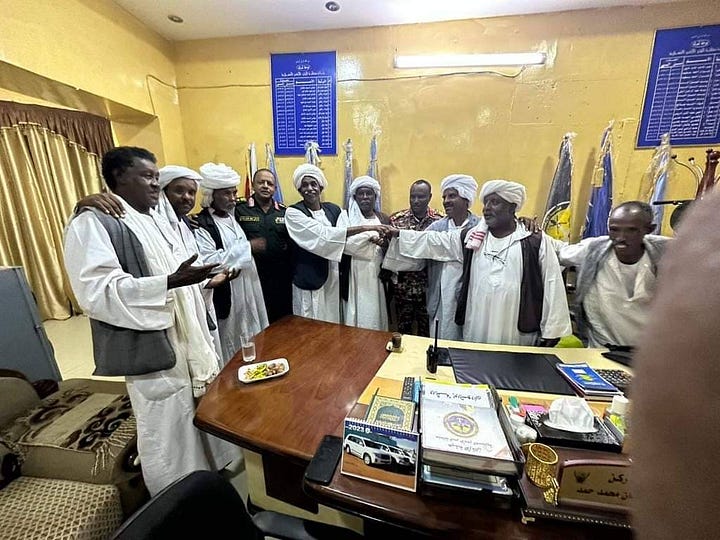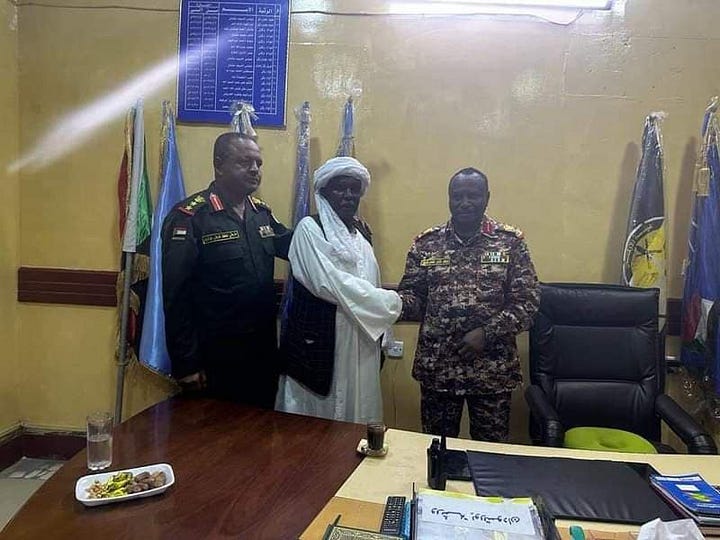Reconciliation between Beja militia and army commanders in Port Sudan
Show of unity after a brief clash last week in Port Sudan


The Beja militia leader Dirar Ahmed Dirar, known as Shaybah Dirar, has reconciled with the leadership of the Red Sea Military Region, easing tensions in Port Sudan.
This follows a brief gunfight in Port Sudan last Monday, in which nobody was reported dead or injured, between the Sudan Armed Forces (SAF) and members of Dirar’s militia. Dirar is head of the Alliance of Eastern Sudan Parties and Movements, a successor of the historic Beja Congress armed group.
After that incident, Dirar said in a media interview that he honored the army troops fighting the Rapid Support Forces in Khartoum State but, regarding the forces in Red Sea State, “I do not recognize you and I will not recognize you.”
Al-Youm Al-Tali newspaper reported September 22, “Reconciliation was concluded at the generous initiative of Sheikh Mohammed Tahir Suleiman Betai, and the leader Musa Mohamed Ahmed, and thanks to efforts made by notables and youth in Red Sea State.” The paper was referring to a local religious leader and leading political figure in the state, respectively. “Al-Youm Al-Tali learned that the crisis that broke out between the head of the Alliance of Eastern Sudan Parties and Movements and the leadership of the Red Sea Military region has been completely contained.”
The threat of violence in Port Sudan is a major risk to the Sudan Armed Forces because it is their de facto alternative capital now that Khartoum is mostly controlled by the RSF. The containment of tensions with the local militia could therefore help stabilize the army’s rear area of operations, supply, logistics, and headquarters.

